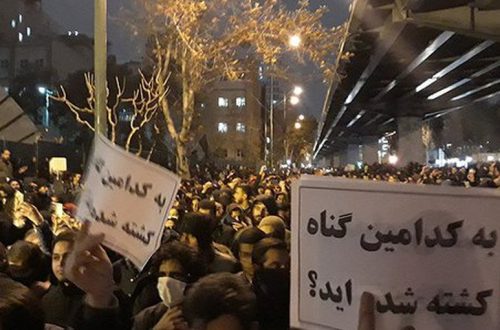It is not actual suffering but the taste of better things which excites people to revolt.
Eric Hoffer.
There is a general view that the successful election of Mr Mousavi by the Iranian people would not have been a game changing event in relation to Iran’s relationship with the world. Richard Perle is quoted as saying “I don’t think a Mousavi win would have made as big a difference as some people think.” This may well have been true, given the structures of government in Iran, which mean that power resides with an unelected supreme leader.
However, it seems seems his non-election may be a game changing event internally. It was clear before the election that crowds of people were placing hope in Mr Mousavi for a better future, more perhaps than he expected after his low key event in a mosque. By the later stages of the election he, and his wife, were attracting crowds of people who may have surprised Mr Mousavi with their expectations of major change in Iran. Now those expectations have been thwarted, it is perhaps not unsurprising that scenes like this are occurring. Crowds of muscular liberals are on the streets demanding changes that might not have been asked for if Mr Mousavi had been allowed to win (assuming the election was stolen.)
It is perhaps worth thinking of the Iranian establishment not as a government, but as a continuing revolution. While they can still summon up crowds of people to shout “death to America”, the dynamism may be waning. In private life, Iran is a different country. The morality police, usually shipped in from rural areas, are loathed by the the city dwellers, and attitudes to the outside world are far more conciliatory. Even the start of the Iranian revolution was not a homogenous move into an Islamic Republic, with a hijacking of popular unrest, and a vicious suppression of other routes out of the Shah’s rule. Hoffer argues that the nature of the start of a mass movement, gives a clue to its eventual end.
The manner in which a mass movement starts out can also have some effect on the duration and mode of termination of the active phase of the movement. When we see the Reformation, the Puritan, American and French revolutions and many of the nationalist uprisings terminate, after a relative short active phase, in a social order marked by increased individual liberty, we are witnessing the realisation of moods and examples which characterised the earliest days of these movements. All of them started out by defying and overthrowing a long-established authority. The more clear-cut this initial act of defiance and the more vivid its memory in the minds of people, the more likely is the eventual emergence of individual liberty.
In the case of Iran, part of the initial revolution was based in the same feelings we are seeing on the streets today. Despite the restricted freedom in Iran, society has been allowed to strain against the system and develop individual freedoms. The revolution in Iran has already made two mistakes which may shorten its life. Firstly, they have allowed their educated population to taste freedom and guess what could be possible. Secondly, they failed to crush opposition the regime early in the election campaign, allowing dissenters to gain momentum in the election campaigning. The next potential mistake they could make is to show weakness and not violently suppress this green counter-revolution. Regimes fail because they show weakness in the face of opposition; a natural slide towards further concessions can occur.
Sadly, it may be this is a weakness they do not have, but we can hope.


